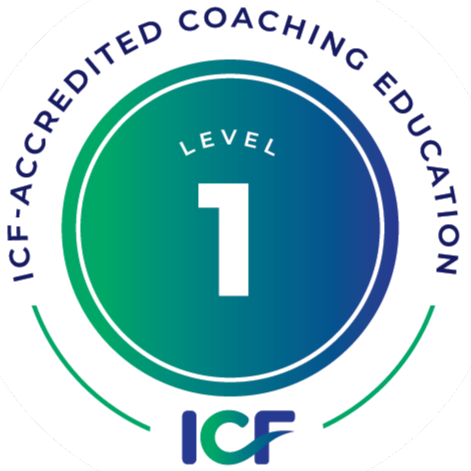
By: Marilyn O'Hearne, MSW, MCC
Do you find yourself on the thin line of wanting to be direct without crossing the line into being too directive where you lose clients, customers, direct reports (and fail your coaching exam)? My desire to see you getting the best results and being more impactful led me to create a 7 session virtual course on this topic.
As an Executive Coach, Leadership Coach, Coach Trainer and Mentor Coach, I see other coaches and the leaders I work with struggling to find this balance. We know that the best results occur when our clients and/or direct reports come up with their own ideas and solutions rather than our telling them what to do. (This can work in personal relationships as well!)
And as a Culturally Intelligent Coach, I recognize cultural differences. I am known as a clear, concise, direct communicator. And I check in with my clients about their culture and make adjustments to my level of directness based on their culture (nationality, region, generation, ethnicity, etc.).
My last blog was on Practicing the Refresh Pause for Greater Impact and PEP in our VUCA (Volatile, Uncertain, Complex, Ambiguous) World. We crave certainty, clarity, directness. Yet besides the danger of moving to being too directive (decreasing ownership, results and impact), some confuse being direct with being rude (what is acceptable for one culture may be considered rude in another), which may result in losing clients, business, direct reports; with a negative effect on the bottom line.
Others may bully people (previous blog post) and try to excuse it by calling it “direct”. Part of the International Coach Federation definition of Direct Communication (1 of the 11 Core Coaching Competencies) is “Uses language appropriate and respectful to the client,” which is the opposite of bullying.
I offer this acronym for being DIRECT:
- Deals with Ambiguity
- uses Intuition
- Recognizes Cultural Differences
- Expands Perspectives
- Clear, “Compassionate Edge” Feedback
- Transforms through Metaphors
More about each of these in future blogs! Again, this is based on the ICF definition of Direct Communication.
“The coach creates sufficient space for the client to have equal or more communication time than the coach,” is one of the markers of Master Certified Coach (MCC) level Direct Communication. And it works for everyone-balance the amount of time you are communicating with allowing space and time for others to communicate. I notice a big difference in beginning (asking lots of questions) and more experienced coaches in this regard, and it was one of my reasons for creating the class.
 Marilyn O'Hearne is a Master Certified Coach with the International Coach Federation. Marilyn's coaching clients report breakthrough increased PEP (Performance, Effectiveness, and Profitability, and/or Peace, Energy, and Prosperity). For 30+ years, she has facilitated development through coaching, counseling, training, writing (Renewing Your Spirit workbook, etc); teaching at universities, ILCT, and in Brazil. Marilyn’s gentle strength ("the Velvet Hammer") provides a secure foundation while challenging clients (primarily leaders and those in transition) to be their best. Visit her website for more information.
Marilyn O'Hearne is a Master Certified Coach with the International Coach Federation. Marilyn's coaching clients report breakthrough increased PEP (Performance, Effectiveness, and Profitability, and/or Peace, Energy, and Prosperity). For 30+ years, she has facilitated development through coaching, counseling, training, writing (Renewing Your Spirit workbook, etc); teaching at universities, ILCT, and in Brazil. Marilyn’s gentle strength ("the Velvet Hammer") provides a secure foundation while challenging clients (primarily leaders and those in transition) to be their best. Visit her website for more information.




